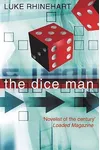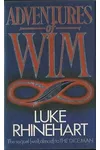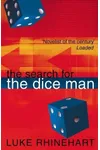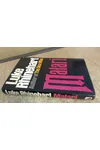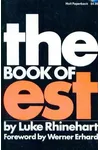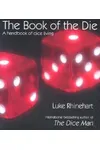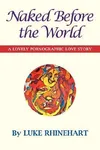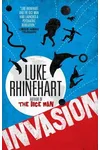Picture an American storyteller who dared to roll the dice on life itself—meet Luke Rhinehart! Known as the provocative pen name of George Cockcroft, Rhinehart shook up the literary world with his cult classic The Dice Man, a novel that blends dark humor, philosophy, and a radical take on free will. His work invites readers to question control and embrace chance in a world obsessed with order.
With a mischievous grin and a pair of dice, Rhinehart crafted stories that blur the line between fiction and reality, earning him a devoted following. Let’s dive into the life, works, and lasting impact of this literary rebel.
The Making of Luke Rhinehart
Born George Powers Cockcroft on November 15, 1932, in Albany, New York, Rhinehart grew up in a world of structure, the son of college-educated parents. He earned a BA from Cornell University and both an MA and PhD in psychology from Columbia University. His academic path led him to teaching, where he explored Zen and Western literature, planting the seeds for his unconventional ideas. It was during a lecture that he first floated the concept of living by dice rolls, sparking intrigue and disgust—a reaction that inspired his groundbreaking novel.
Rhinehart’s early experiments with dice slowed his writing, but they fueled his philosophy of embracing randomness. By 1971, he was ready to unleash his alter ego, Luke Rhinehart, onto the world with a story that would challenge readers’ perceptions of choice and identity.
Luke Rhinehart’s Unforgettable Stories
Rhinehart’s debut, The Dice Man (1971), follows a bored psychiatrist named Luke Rhinehart who lets dice dictate his decisions, leading to chaotic, often shocking outcomes. Its bold tagline, “This book will change your life,” wasn’t just hype—the novel’s exploration of freedom and morality became a counterculture sensation, selling over 2 million copies in 27 languages. Its blend of first- and third-person narratives, mixed with fictional documents, keeps readers guessing: is this fiction or autobiography?
Rhinehart followed with The Search for the Dice Man (1993), a sequel where Luke’s son, Larry, rejects his father’s chaotic philosophy only to be drawn into its orbit. Naked Before the World (2008) captures 1960s Mallorca’s hippie vibe, following a young artist navigating love and identity. The Book of the Die (2000), a playful nonfiction guide, offers essays, proverbs, and dice games to inspire a freer life. Each work, with its witty, subversive style, challenges societal norms and celebrates chance.
Rhinehart also penned screenplays and a 2018 spoken-word album, The Dice Man Speaks, but none matched The Dice Man’s cultural quake. His writing, often darkly comic, dares readers to question their own patterns and embrace life’s unpredictability.
Why Luke Rhinehart Matters
Rhinehart’s work resonates because it taps into a universal itch: the desire to break free from routine. The Dice Man became a cult classic, inspiring bands like The Fall and Talk Talk, and earning accolades from the BBC as one of the 20th century’s most influential books. Its provocative premise—living by chance—sparked debates on morality and responsibility, influencing readers to rethink their choices.
Even after his passing on November 6, 2020, Rhinehart’s legacy endures. His books remain in print, and communities of “dice people” still explore his philosophy. In a world of algorithms and predictability, Rhinehart’s call to embrace randomness feels more relevant than ever.
- Born: November 15, 1932, Albany, New York
- Key Works: The Dice Man, The Search for the Dice Man, The Book of the Die
- Notable Recognition: BBC’s “50 Most Influential Books” (1995), Loaded’s “Novel of the Century” (1999)
Snag The Dice Man and dive into Luke Rhinehart’s wild, thought-provoking world—roll the dice and see where it takes you!
